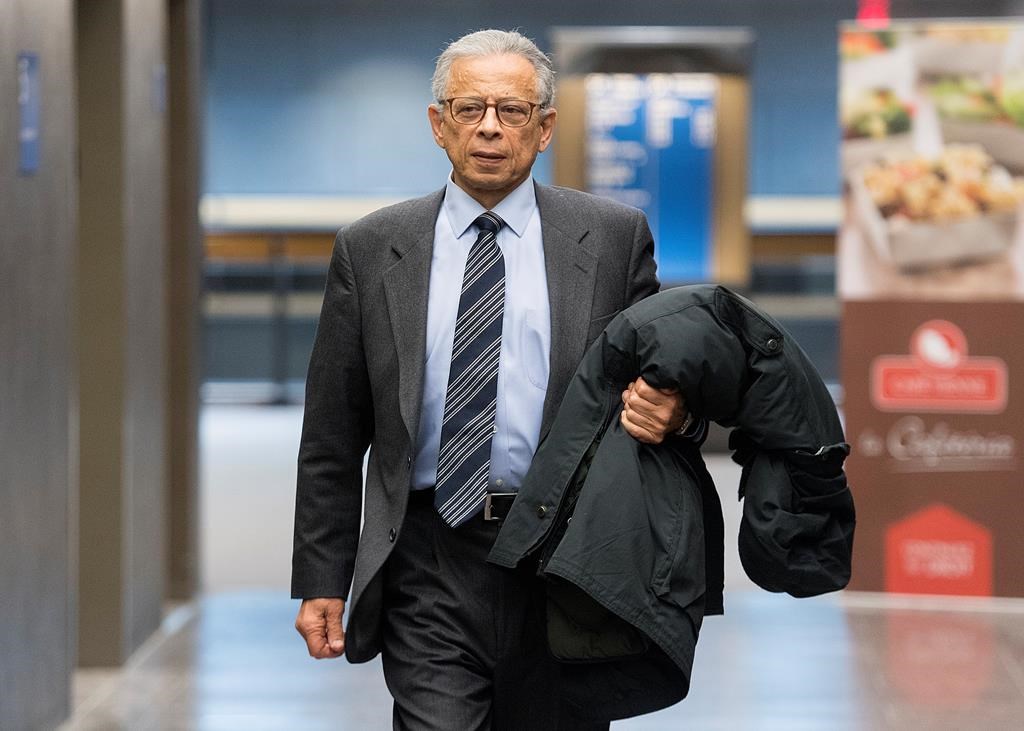Twenty-five years after Parliament banned Canadian companies and executives from bribing foreign officials to win deals, the number of anti-corruption enforcement probes launched here “remains exceedingly low,” a new report says.

The report, by the Organisation for Economic Co-operation and Development, says that since Canada’s Corruption of Foreign Public Officials Act was adopted and implemented in 1999, only nine probes have led to criminal charges being laid in foreign bribery and corruption cases.
Only four people have been convicted, and only four companies in all have ever faced sanctions, the OECD report adds.
Because there are no sentencing guidelines and most of the handful of cases that have been launched were concluded through a plea deal with limited information published, it is publicly unclear how fines are calculated in foreign bribery cases in Canada, the report stated.
“Unfortunately, the news is not good,” said John Boscariol, a Toronto lawyer and partner at McCarthy Tetreault who leads the law firm’s international trade and sanctions practice.
Boscariol dissected the OECD report briefly on his LinkedIn professional networking account and highlighted some key findings.
“The report highlights a significant concern many of us have been raising for years now — the lack of publicly available information on important elements of resolved foreign bribery cases and the lack of clarity around self-reporting,” he added.
Boscariol was responding to findings by members of an OECD working group assessing Canadian efforts to combat bribery of foreign officials under its International Anti-Bribery Convention.

The report and its recommendations reflect the findings of an anti-corruption working group made up of experts from Austria and New Zealand. The report was adopted on Oct. 12. The OECD group did its own research and made visits to Toronto and Ottawa in May and June.
“Due to the limited case information publicly available, the root causes of the deficiencies (by Canadian officials) in detecting, investigating and prosecuting foreign bribery, are difficult to pinpoint,” the OECD report stated.
“The recent pattern of restrictive court interpretation (in Canada) of the Corruption of Foreign Public Officials Act is also a source of concern calling for action.”
The OECD is calling on Canadian authorities — the RCMP and federal public prosecutors — to review and analyze themselves to understand why enforcement results are so exceedingly low.
The RCMP did not initially comment on the report.
Five days later, Sgt. Kim Chamberland, a spokesperson for the national police at its headquarters in Ottawa, said the Mounties are heartened that the OECD working group recognized the “RCMP’s prompt response in initiating bribery investigations, and our foreign bribery awareness-raising initiatives in Canada and abroad.” Those efforts demonstrate the RCMP’s “continued commitment to disrupting, deterring and preventing corruption domestically and internationally.”
More recently, Sgt Chamberland added, the RCMP has “increased its resources and specialization in foreign bribery matters. Furthermore, the RCMP international anti-corruption team progressively increased its engagement with the private sector, as well as public government agencies, on foreign bribery.”
Inside the OECD report, however, the RCMP reportedly shared that from 2018 until the end of 2022, the Mounties special foreign bribery and corruption unit opened 31 new foreign bribery investigations (six per year on average). During the same period, investigators closed “at least 33 investigations,” including cases opened before 2018.
The OECD working group said the sharp increase in the number of foreign bribery investigations the RCMP reportedly opened since its last review was “encouraging,” but said that sentiment was “offset by the high proportion of discontinued investigations.”
Given the size of the Canadian economy and the many sectors in which its many major companies operate, the number of investigations that led to prosecutions would be expected to be higher, the report suggested.
Both the United States and the United Kingdom have more foreign bribery prosecutions.
The OECD is recommending that Canadian police and justice officials conduct an analysis into all foreign bribery cases undertaken in Canada since the new law to “identify the challenges that may impede effective investigation and prosecution of the foreign bribery and related offences and develop an action plan to address these.”

The Supreme Court’s Jordan ruling that proscribes time limits on any accused’s trial appears to be a factor that is limiting and hurting successful prosecutions, the OECD noted, especially because foreign bribery probes are far more complex and take far more time to complete.
In one example in 2019, some criminal charges laid against one SNC-Lavalin executive, Sami Bebawi, were stayed by a Quebec Superior Court judge who ruled it took Crown prosecutors too long to bring the case to trial and delays were unreasonable.
The OECD report also recommended that the RCMP work with FINTRAC, the Financial Transactions and Reports Analysis Centre of Canada, to detect foreign bribery through money laundering tracking and delivering intelligence on suspicious transactions.






Comments